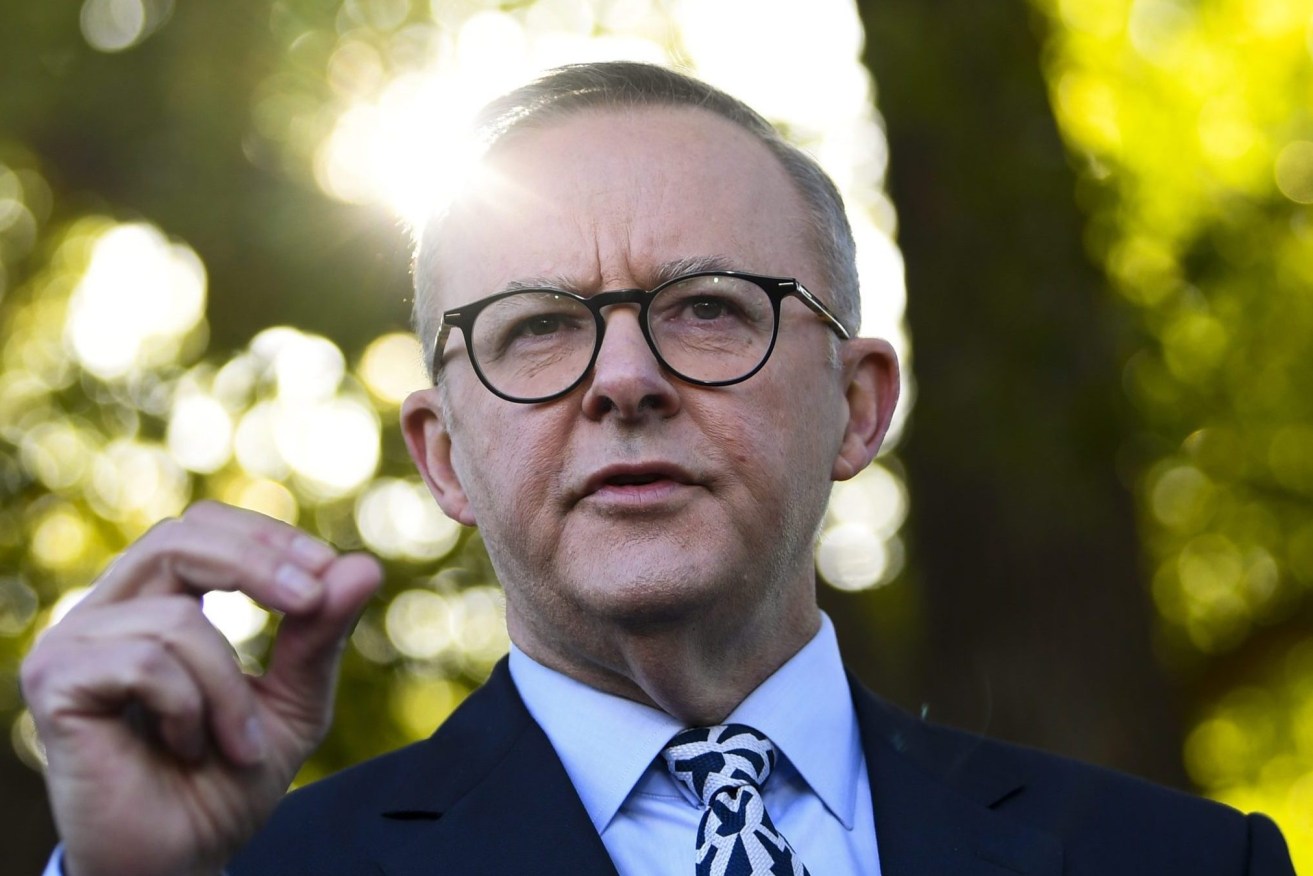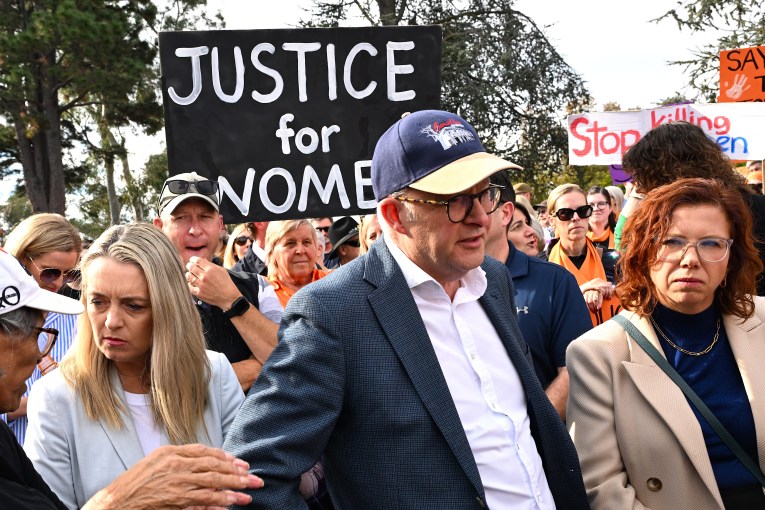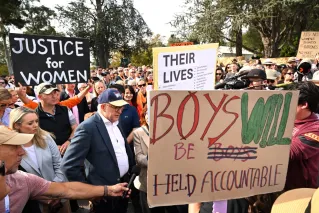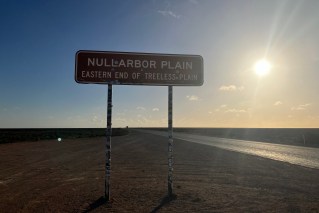Sorry Albo, there’s some territory to cover before we call full time on climate wars
Anthony Albanese will probably boast that the climate wars are over when the Labor Party’s national conference assembles in Brisbane next month but Dennis Atkins wonders if it’s a little early to claim victory.

Prime Minister Anthony Albanese faces some surprisingly large decisions over the coming months, particularly when it comes to the climate change wars. (AAP Image/Lukas Coch)
It’s a regularly quoted cliche that history doesn’t always repeat but often rhymes. Another thought is that it echoes and this happens nowhere as frequently as it does in politics.
Waves of the importance of incumbency sweep back and forth across nations, the rise and fall of populism has the world in its sway and the strongman theory has not had greater importance in global events than in the current era.
Last week a by-election in England rang a bell the Australian Labor Party should listen to, especially the federal government of Anthony Albanese.
Three by-elections held on Thursday last week all spelled doom for the British Conservative Government led by Rishi Sunak.
Labour won a safe Conservative seat with massive 22.7 percent swing in the Yorkshire seat of Selby and Ainsty, while the centrist Liberal Democrats cruised to victory in the very middle class, West Country district of Somerton and Frome with a historic 29.6 percent swing against the incumbent Tories.
However, in the outer London seat of Uxbridge and South Ruislip, Labor fell 500 votes short despite a 7.5 percent swing against the ruling party. This seat was the most probable loss for the Conservatives but Labor couldn’t clear that bar.
Labour leader Sir Keir Starmer was quick to blame (https://bit.ly/3CMOK2M) a tax on polluting motor vehicles – known as the ultra low emission zone scheme or Ulez – and said its future would require some reflection by the British Opposition and London Mayor Sadiq Khan.
Khan, the Labour leader of the Greater London Council, defended the Ulez (introduced, ironically, by the Conservative Government of Boris Johnson whose resignation triggered the contest in his old seat of Uxbridge).
British Labour’s deputy Angela Rayner issued a warning on the possible political price of climate policies that could have a financial impact on voters being courted in the lead up to the next UK election due by 2025.
“There is a concern that we have to make sure that whatever is implemented is not at the cost of working families,” Rayner told the BBC.
People might wonder what this has to do with anywhere else, let alone Australia. Possibly, quite a lot.
We’ve been told since the election of the Albanese Government 14 months ago this week the climate wars are over – it’s all sunlit uplands for getting rid of fossil fuels as an energy source, replaced by so much wind and solar.
It was always a stretch and the durability of this boast will be sorely tested in months ahead.The policy challenges were explained this week by New Daily columnist and ABC TV finance reporter Alan Kohler (https://bit.ly/3DsMD4s) who correctly pointed out the idea climate change could be handled without significant cost was always a fantasy.
Kohler reckons the impact is going to be so great it would require intervention on a scale equivalent to what we saw in the wake of the Covid pandemic – printing billions of dollars to pay for compensation to producers and consumers.
The public might not be as concerned with greater government spending than before the pandemic but it’s doubtful there is any appetite for another multi-billion dollar price tag to fund a scheme without necessary solid acceptance and understanding.
The problem with a lot of sector specific climate abatement – dealing with transport, agriculture and emission intensive industries – is the cost can be prohibitive for consumers or governments wanting to meet the imputed ambitious targets.
The motor vehicle emissions tax blamed for denying British Labour a second by-election win is on the less onerous side of this climate ledger. Elsewhere in Europe a lot of schemes similar to those our federal government wants to implement are in play and there’s been a building backlash for most of this year.
In the Netherlands in March a new protest party, the BoerBurgerBeweging (the Farmer Citizen Movement known as the BBB) easily won the most votes in a national poll.
The BBB was successful by campaigning against one policy – a rapid, strict and far-reaching curb on nitrogen pollution introduced by the latest government led by Mark Rutte.
Rutte was a consensus politician who managed to avoid scandal and could unite an often fractious nation. He said a fortnight ago he’d had enough, called snap elections and resigned. A less liberal government opposed to climate action will also certainly be in power after the early poll now due in late November.
To the south in France another centrist, Emanuel Macron, has been dogged by the yellow vests – the so-called gilets jaunes, a coalition of rural and suburban farmers and truck drivers protesting climate abatement fuel tax hikes.
Elections in Spain this past weekend saw the centre left government of Pedro Sánchez taken to the brink of defeat and could yet be toppled at the end of what will be weeks, if not months, of bitter negotiations or fresh elections where climate policies will be probably traded away for basic economic well being.
Other elections in Poland and Slovakia – scheduled for our Spring – will likely see climate in retreat. These will follow centre right governments in power in Rome and Athens, both seen as recalcitrants on climate despite suffering catastrophic summer heat waves and wildfires.
Politicians in Brussels who just recently saw themselves in the vanguard of climate action now confront a future looking difficult and dark.
This month’s G20 climate negotiations in Goa, India, ahead of the scheduled UN COP 28 meeting in the United Arab Emirates in December, failed to agree on any meaningful cuts to fossil fuel power generation, bowing to pressure from Saudi Arabia.
Just at a time when the earth is reaching a critical number of climate tipping points, global action is not just stalling it looks like going backwards.
That this is happening when financial pressures are increasing on households because of inflation and the fallout from the Russian war in Ukraine as well as climate-induced famine in East Africa is making it harder for western governments to hold the line, let alone enact meaningful change.
For the Albanese Government, the political pressures on its agenda – small beer in the scheme of things – will make it difficult on all fronts.
Peter Dutton’s Opposition will be keen to make life difficult for the government and, given the swirling problems from cost of living to trying to back-in constitutional change, there is plenty of pain on offer.
The climate wars have a way to go yet.












